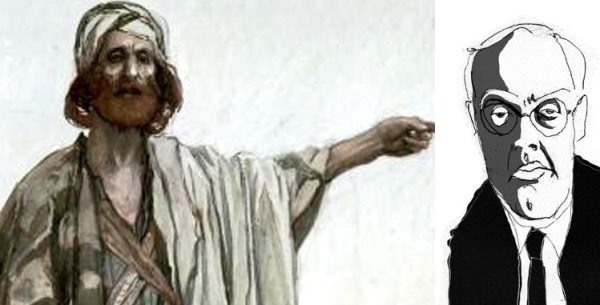You will hear, in Chris Hedges’ dystopian essay, “The Myth of Human Progress and the Collapse of Complex Societies,” the clear echoes of the prophet Amos. In Hedges you hear the high-noon cries of one as sublimely outraged as that old farmer from a small village in Judah, 2800 years ago.
Consider that Amos was preaching, hammer and tongs, during the long and relatively peaceful time of King Jeroboam II. Consider that, according to the New Oxford Annotated Bible, it was a time when Israel attained a height of wealth and territorial expansion never again equalled; a time when great prosperity lead to increasingly gross inequities between urban elites and the poor; a time when, through manipulation of debt and credit, large land owners amassed huge estates and capital at the expense of small farmers.
The contemporaneous notes are unmistakable. The cultures and prophetic messages are mirrored. Except, I suppose, along with the conservative corporate elites, Hedges includes the smug pious liberals, for which he saves equal outrage.
The irony (always irony) in this is that conservative Christians vilify Hedges: “left-wing nut job,” etc., while revering Amos—seeing him as biblical hero with the fire of God’s word on his tongue and, no doubt, the inerrant text in his hands. As for smug pious liberals, they (we?) would be enthralled by Amos’s message, applaud his thundering denunciations, while passive-aggressively dismissing the Amos-esque Hedges, unable or unwilling to see themselves in his gaze. Unwilling or unable to even know how to give up the privileges of our culture.
Like Amos, Hedges doesn’t hold out hope of repentance of the corporate oligarchs and those grown comfortable with the grease of cultural privilege. And yet, like Amos, he does hold out hope for justice.
Here’s Amos:
“…to him who sows the seed; the mountains shall drip sweet wine, and all the hills shall flow with it.
Hedges sees hope in the seeds sown through the sublime madness of certain artists, philosophers, writers, sculptors, painters, poets, photographers and musicians. In fact sees these “prophets” and their work, as the only possible avenue of hope.
For Chris Hedges
You’ve seen the bramble
sway over the olive and oak,
and the moon brood
red with warning,
of grey faces filing,
from house to house,
burning poems of dissent,
and disassembling
the new prophets of protest.
And as the forests recede
on the skull of the earth,
and the seas sweep past
their boundaries,
as the birds of Minerva,
abandon their station,
you call us to listen
to the last lone lark,
sing the benediction,
at the owl-light
of civilization.
Yet in the mists
of imagination, you say,
the sap of sublime
madness rises within
the slenderest maple,
driven by the chrism,
of art and truth and
the “absurdity and certainty
of divine justice.”


Hunger Games, then and now. Hedges inspires me (and at the same time depresses me), and those who revile him while revering Amos just make me desperately tired. The work of artists and musicians and poets is what I have to drink these days; thanks for this.
Whoa –or Woe say the prophets, but “as it was in the days of Noah . . .” ):
I like your poetic and prophetic echo.
I’m with you Connie. Thanks.
Thank you Ike, and thanks for the that “woe-ful” reference.
Thanks for introducing me to Hedges – great observation about our blindness to the full message of Amos!
Thank you Sam. Very welcome!
In his “Streams of Living Water,” Richard Foster does a great job on Amos in the chapter on Social Justice. You would like it.